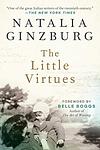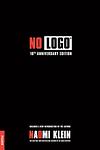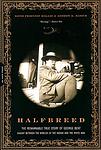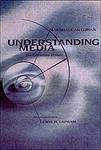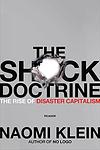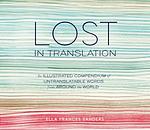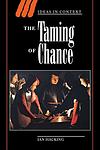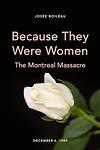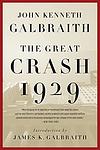The Greatest Italian, Canadian "Nonfiction" Books Since 1950
Click to learn how this list is calculated.
This list represents a comprehensive and trusted collection of the greatest books. Developed through a specialized algorithm, it brings together 300 'best of' book lists to form a definitive guide to the world's most acclaimed books. For those interested in how these books are chosen, additional details can be found on the rankings page.
Genres
Countries
Date Range
Reading Statistics
Click the button below to see how many of these books you've read!
Download
If you're interested in downloading this list as a CSV file for use in a spreadsheet application, you can easily do so by clicking the button below. Please note that to ensure a manageable file size and faster download, the CSV will include details for only the first 500 books.
Download-
1. The Periodic Table by Primo Levi
"The Periodic Table" is a collection of short stories that use elements of the periodic table as metaphors to explore the author's experiences as a Jewish-Italian chemist before, during, and after World War II. Each chapter is named after a chemical element, reflecting its significant role in the story. The work provides deep insights into the human condition and the power of science, while also serving as a poignant memoir of survival during the Holocaust.
-
2. Danube by Claudio Magris
This literary work is a rich tapestry that combines travelogue, history, and cultural analysis, following the journey of the river Danube from its sources in the heart of Europe to its delta at the Black Sea. As the narrative meanders through various countries, it delves into the complex history and diversity of the regions along the riverbanks, reflecting on the interplay of different cultures, languages, and peoples. The book is a contemplative exploration of the European spirit, examining the river as both a physical and metaphorical conduit through which ideas and influences have flowed, shaping the continent's past and present.
-
3. The Drowned and the Saved by Primo Levi
This book is a deeply moving exploration of the Holocaust, written by a survivor. It delves into the horrifying experiences at Auschwitz, examining the psychological impact on the prisoners, the brutal behavior of the guards, and the complex moral dilemmas faced by both. The author also discusses the concept of memory and its unreliability, especially in the context of such traumatic events, and analyzes the ways in which the Holocaust has been represented and remembered in society. The book serves as a profound meditation on the human condition under extreme circumstances.
-
4. The Marriage Of Cadmus And Harmony by Roberto Calasso
"The Marriage of Cadmus and Harmony" is a unique exploration of Greek mythology. The narrative follows the journey of Cadmus, a Phoenician prince, and his marriage to Harmony, a goddess. The book delves deep into the complex and rich tapestry of Greek myths, presenting them as a continuous and ever-evolving story. It offers fascinating insights into the gods, heroes, and monsters of ancient Greece, while also drawing connections to modern life and thought.
-
5. The Little Virtues by Natalia Ginzburg
"The Little Virtues" is a collection of essays that delve into the fabric of everyday life, exploring themes such as the intricacies of family relationships, the importance of personal growth and integrity, and the role of education and parenting. The author reflects on her own experiences, including her upbringing in Italy, the impact of World War II on her life, and her observations on the cultural and societal norms of her time. With a blend of personal anecdote and philosophical insight, the essays advocate for the pursuit of larger virtues—such as generosity, honesty, and courage—over the 'little virtues' like frugality and caution, suggesting that a life well-lived is one that embraces the full spectrum of human potential and kindness.
-
6. Insight: A Study of Human Understanding by Bernard Lonergan
The book is a comprehensive exploration of human understanding and cognition from a philosophical perspective. It delves into the nature of knowledge, the process of knowing, and the dynamics of inquiry and learning. The author presents a detailed analysis of the human intellect and its operations, investigating the role of insight in decision-making, problem-solving, and discovery. The book also discusses the relationship between understanding and other cognitive faculties such as perception, memory, and imagination, while examining the impact of cultural, social, and historical factors on human understanding.
-
7. No Logo by Naomi Klein
This book explores the negative effects of corporate branding and globalization. It critiques the marketing strategies of large corporations, arguing that they exploit workers and manipulate consumers. The author also discusses how these corporations have a significant influence on culture and public space. The book suggests that consumer activism and grassroots movements can serve as effective counter-forces to corporate power.
-
8. The Medium Is The Massage by Marshall McLuhan
"The Medium Is The Massage" explores how media, more than the content it carries, influences and shapes human perception and society. The book argues that each medium, independent of content, creates a new environment that alters our sensory balance and social dynamics. It emphasizes that the medium through which we receive information—be it print, television, or radio—plays a crucial role in shaping our experiences and understanding of the world. The work is a seminal exploration of media theory, famously coining the phrase "the medium is the message," to highlight the profound impact of the medium itself over the content delivered through it.
-
9. Outliers by Malcolm Gladwell
The book examines the factors that contribute to high levels of success. Through a compilation of anecdotes and analyses of various cultural phenomena, it argues that success is not simply a result of individual talent or intelligence, but rather the result of a combination of opportunities, hidden advantages, cultural legacies, and the amount of time spent practicing a specific task. The author challenges the traditional notion of the "self-made" individual by emphasizing the importance of external influences and timing, such as being born in a certain era or having access to specific resources, in shaping one's ability to achieve extraordinary accomplishments.
-
10. The Curve Of Time by M. Wylie Blanchet
"The Curve of Time" is a captivating memoir that chronicles the summer voyages of a widowed mother and her five children as they explore the rugged coastline of British Columbia in the 1920s and 30s aboard their 25-foot boat. With lyrical prose and a pioneering spirit, the narrative weaves together the family's adventures and encounters with the natural world, indigenous communities, and isolated settlers. The book is a reflection on time, nature, and the enduring bonds of family, offering a timeless meditation on grief, resilience, and the enchanting mystery of the sea.
-
11. Halfbreed by Maria Campbell
This autobiographical book is a powerful and candid account of a Métis woman's struggles with identity, poverty, and racism in Canada. It chronicles her journey from a difficult childhood in a small Saskatchewan community, where she faced discrimination and personal tragedies, to her efforts as an adult to find her place in a society that often marginalized Indigenous people. The narrative is a poignant exploration of the author's search for self-acceptance, cultural pride, and her fight against the systemic injustices that Indigenous communities have endured. Her story is a testament to resilience and the strength found in embracing one's heritage.
-
12. The Glenn Gould Reader by Glenn Gould
"The Glenn Gould Reader" is a compilation of writings by a renowned Canadian pianist, known for his unique and insightful perspectives on music and culture. This collection offers a window into the artist's mind, featuring a diverse range of essays, articles, reviews, and interviews that explore his philosophies on performance, the intricacies of musical interpretation, and the role of technology in the arts. His articulate and often provocative commentary extends beyond classical music to touch upon a variety of subjects, reflecting his broad intellectual interests and distinctive voice in the world of music and beyond.
-
13. The Future Of Democracy by Norberto Bobbio
In "The Future of Democracy," the author provides a critical examination of the concept and practice of democracy, exploring its historical evolution, inherent challenges, and potential future. The work delves into the tension between the ideals of democracy and the practical realities of governing, addressing issues such as the role of political parties, the influence of public opinion, and the impact of economic inequalities. The author argues for the necessity of continuous democratic reform and the importance of safeguarding democratic principles in the face of changing social and political landscapes, ultimately presenting a thoughtful reflection on the prospects and resilience of democratic systems in the modern world.
-
14. My Father's House by Sylvia Fraser
The book is a harrowing memoir that delves into the author's traumatic childhood, marked by the dark secret of her father's sexual abuse. The narrative unfolds as the author, after years of repressed memories, begins to confront the truth about her past. This journey of self-discovery and healing challenges her understanding of family, memory, and identity. The memoir is a poignant exploration of the long-term effects of abuse and the complex process of recovery, as the author grapples with the betrayal by a person who should have been her protector, ultimately striving to reclaim her sense of self.
-
15. Understanding Media by Marshall McLuhan
The book is a seminal work in media theory that explores the profound effects of different communication technologies on human thought, behavior, and society. The author argues that the medium through which information is conveyed is just as important, if not more so, than the content of the information itself. This concept is encapsulated in the famous phrase "the medium is the message," which suggests that the characteristics of the medium influence how the message is perceived and understood. The book examines a wide range of media, from the spoken word to the printed word, to television and beyond, and posits that each medium, by its very nature, shapes and controls the scale and form of human association and action.
-
16. The Shock Doctrine: The Rise of Disaster Capitalism by Naomi Klein
This book explores the concept of "disaster capitalism", the idea that global capitalism thrives on disaster and chaos. The author argues that free market policies are often pushed through while countries are reeling from wars, natural disasters, or economic crises. She provides a historical analysis of these events, from Chile in the 1970s, to Russia in the 1990s, to the war in Iraq, demonstrating how governments and corporations exploit these periods of shock to implement economic reforms that would otherwise be rejected.
-
17. Lost In Translation by Eva Hoffman
"Lost in Translation" is a memoir that explores the profound complexities of identity and language through the lens of a young girl's emigration from Poland to Canada and then to the United States. The narrative delves into the emotional and psychological challenges of adapting to new cultures, the sense of displacement, and the search for belonging. It poignantly captures the experience of losing one's homeland and the struggle to assimilate while maintaining a connection to one's roots. The author reflects on the nuances of language and the deep connection between language and self, offering insights into the immigrant experience and the transformative power of embracing multiple worlds.
-
18. The Taming of Chance by Ian Hacking
"The Taming of Chance" delves into the evolution of the concept of probability and its societal implications. The book takes the reader through the historical progression of probability and statistics, illustrating how they have shaped and been shaped by societal norms. The author highlights the profound impact of this mathematical concept on various aspects of life, including law, science, and philosophy, and how it has fundamentally changed our perception of the world.
-
19. The Montreal Massacre by Louise Malette and Marie Chalouh
The book provides a detailed account of a tragic event that took place at an engineering school in Montreal, where a gunman targeted female students, resulting in the loss of numerous lives. The authors delve into the societal and cultural factors that may have contributed to the perpetrator's motivations, examining issues of gender-based violence and misogyny. Through interviews, personal reflections, and analysis, the book seeks to honor the victims and explore the broader implications of the event for Canadian society and the ongoing struggle for gender equality.
-
20. Il Mestiere Di Vivere by Cesare Pavese
The book is a deeply personal diary that chronicles the inner life of its author, a prominent Italian writer, over a period of more than a decade. It offers a raw and intimate glimpse into his thoughts, daily experiences, and struggles with existential questions, relationships, and his own creative process. The diary entries reflect on themes of solitude, despair, and the search for meaning, as well as the author's observations on literature, politics, and the human condition. The work is renowned for its literary introspection and the poignant exploration of the challenges inherent in the "craft of living."
-
21. The Great Crash, 1929 by John Kenneth Galbraith
The book provides a detailed analysis of the economic factors and decisions that led to the Wall Street crash of 1929, which precipitated the Great Depression. It examines the speculative bubble that grew in the preceding years, driven by overly optimistic investments in the stock market, and the lack of regulation that allowed for rampant financial speculation. The author delves into the aftermath of the crash, exploring its profound effects on the economy and society, and critiques the responses of financial and political leaders. The narrative serves as both a historical account and a cautionary tale about the dangers of financial excess and the importance of regulatory oversight.
-
22. An Anatomy Of Criticism by Northrop Frye
"An Anatomy of Criticism" is a comprehensive work of literary theory that proposes an overarching framework for understanding the various forms and functions of literature. The book is structured around four essays, each exploring different modes of criticism: historical, ethical, archetypal, and rhetorical. The author argues for an interconnected system of literary criticism that transcends the limitations of individual perspectives and historical contexts. By categorizing literature into myths, genres, and symbols, the work aims to establish a universal structure for literary analysis, advocating for a more cohesive and scientific approach to criticism that emphasizes the inherent order and unity within the literary tradition.
-
23. Crossing The Threshold Of Hope by Pope John Paul II
In "Crossing the Threshold of Hope," the author provides a profound exploration of his faith and addresses complex theological and philosophical questions about Christianity. Through a series of letters, he discusses the nature of faith, the existence of God, the role of the Church, and the challenges of contemporary moral issues. This book offers insights into his personal beliefs and provides guidance on how individuals can find hope and meaning in their lives through spiritual commitment and religious understanding.
-
24. Power Of Now by Eckhart Tolle
The book is a guide to spiritual enlightenment that emphasizes the importance of living in the present moment to achieve true happiness and fulfillment. It argues that many people are trapped in their own minds, dwelling on past regrets or future anxieties, which creates a barrier to inner peace. Through a series of insightful questions and meditations, the book encourages readers to shed their ego-based state of consciousness, embrace the now, and discover a deeper sense of self beyond their thoughts and emotions. The central message is that by connecting with the present moment, individuals can free themselves from suffering, access a higher state of awareness, and experience a profound transformation in their daily lives.
-
25. The Social Construction Of What? by Ian Hacking
"The Social Construction of What?" explores the concept of social constructionism, a theory that argues various aspects of our everyday lives, including knowledge, truth, and social realities, are shaped by social processes and interactions. The book critically examines how this theory is applied across different fields such as science, mathematics, technology, and gender, questioning what exactly is being constructed and the implications of labeling something as socially constructed. The author delves into the debates and controversies surrounding social constructionism, offering a nuanced perspective on its uses and limitations, and encourages readers to consider how social factors influence our understanding of the world.
Reading Statistics
Click the button below to see how many of these books you've read!
Download
If you're interested in downloading this list as a CSV file for use in a spreadsheet application, you can easily do so by clicking the button below. Please note that to ensure a manageable file size and faster download, the CSV will include details for only the first 500 books.
Download



